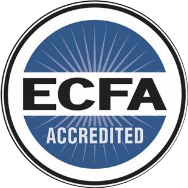
Classical Christian Education for the Nations
When I first arrived as a teacher to the Geneva School in 2003 I saw it as a detour from my ultimate intention of becoming a foreign missionary. While I had great respect for the Christian community at the Geneva School the approach struck me as ethnocentric and almost purposefully ignorant of other great cultures of the world. But it seemed that in order to be an effective missionary one would first have to understand how to minister to one’s own culture. So devoting some years to deepening my understanding of Christianity in the West and the origins of contemporary Western culture would still be time well spent. I had no idea fifteen years later how closely the themes of foreign missions and classical Christian education would reconnect.
I used to think of classical Christian education as the study of “Western” culture. But the West is not a monolithic concept. Is Egypt a Western country or a Western civilization? No, and yet it is one of the first cultures that young Geneva students are exposed to in Second Grade. Even Greece, while still in Europe, lies at its furthest edge. Many ancient Greek-speaking peoples were located in Asia Minor—even the city of Troy itself was there. But when one considered the “Christian” in classical Christian education it was even less clear that this was a narrowly Western endeavor. For Jesus was born in Palestine and spoke Aramaic. Moreover the entire background of the Old Testament is that of the Ancient Near East—Babylon, Assyria, Persia, and Egypt. Early Christianity also had a strong presence in these lands before the rise of Islam led to its decline. Christianity could in no way be construed as a narrowly Western phenomena as there is evidence of it having reached India by the 2nd century A.D. and China by the 7th century A.D. And of course today Christianity is undoubtedly a global religion. Thus what was meant by this term classical Christian education?
Ultimately classical Christian education seeks to pass on the cultural inheritance of the church not merely the culture of some geographic region or particular ethnicity. In as much as the chief area of church growth from 800 AD to 1600 AD was Western Europe, a large part of Christian culture was developed there. Moreover, the emphasis on Greco-Roman culture in the West largely has to do with the milieu into which Jesus came. Because Greek and Latin were the dominant languages of that time, much Christian doctrine was framed in the language and philosophical notions which were also dominant then. On the other hand, these are not mere accidents of time and space or of language and philosophy. “When the fullness of time had come, God sent forth his son, born of a woman.” The incarnation forever bound God’s message to a particular cultural context. But it was not that the gospel was Hellenized, instead it was the Roman and Hellenistic world which was Christianized. All truth is God’s truth as Augustine and other church fathers taught. Therefore as every concept from antiquity was set before the light of Scripture and the scrutiny of the church, the dross was burned away and the gold was refined. This gold is the cultural inheritance of the church.
As classical Christian education is today growing rapidly around the globe I was initially puzzled at the development. I asked myself why Christians in China or Africa would be so interested in the history of the West. Only after visiting China and discussing classical Christian education with the teachers and leaders there did I fully understand the reason why. They are not interested in Western culture because it is Western. They are interested in their Christian inheritance which is the culture of the church. They want to understand how the origin of natural human rights came from the Christian doctrine of man made in the image of God. They want to understand how the concept of limited government was developed to curtail the destructive human tendencies of rulers towards sinful selfishness. They want to understand how Christianity was the cradle which nurtured modern natural science. Chinese Christians no longer think science and democracy will make them happy. They see the decadence and rampant immorality in the West and wish not to follow it. Instead, they would like to recover the Christian roots of Western culture that gave birth to science and democracy.
Moreover, the story of Africa and its relationship to the West is a complex one as well. Many when thinking of Africa and the West immediately picture the Trans-Atlantic slave trade. But fewer know that slavery persisted in Africa for decades after it was outlawed in America and Europe. It was continued by the Muslim slavers who both preceded the trade with Europeans and outlasted it. Dr. David Livingstone in the late 19th century was one of the great British voices to sound the alarm that slavery was still continuing in these lands and must be stopped. In response to his call for the three C’s, Commerce, Civilization, and Christianity, many missionaries came to East Africa. Among other things they established schools. These schools and universities, originally established by missionaries, still have a legacy of being some of the best schools in the region. Moreover Christianity boomed in Africa. Africa and China are on target for being the largest centers of Christendom in the world by 2030. Whereas in 1910 the Americas and Europe counted for 93% of global Christianity, by 2010 it only accounted for 63% with most of the rest living in Sub-Saharan Africa and the Asia Pacific region. The Pew Research Center suggests that 40% of Christians in 2030 will live in Sub-Saharan Africa and other estimates place China in 2030 as the country possessing the largest population of Christians.
While classical Christian education in China and Africa still represents just a small fraction of Christian educational endeavors in those regions, it is a vision that is growing. The Rafiki Foundation in Eustis, Florida has planted ten classical Christian schools in ten countries in Africa and they have a dream to plant one thousand. Originally started in 1987 by Rosemary Jensen, founder of Bible Study Fellowship, it is now led by Karen Elliott, a firecracker of an executive who has warm friendships with church and government leaders throughout Sub-Saharan Africa. A number of Geneva teachers have joined the Rafiki Foundation for a short trip, written curriculum for them, or even found a full time calling there. This is a relationship that Geneva is proud to have. Geneva is always honored to do whatever it can to further Rafiki’s mission of planting classical Christian schools in Africa.
Moreover, there is a new movement of classical Christian schools in China with a growing number sprouting up around that great country. The Geneva School has been privileged to have a handful of its teachers encourage and consult with schools there. Religious persecution in China has risen to a fever pitch, and the persecution is not just of Christians. A Christian human rights lawyer who met with President Bush years ago and began his career by defending villagers from government oppression died under very suspicious circumstances in a military hospital in February. See the March 26 Washington Post article entitled “A Lawyer in China Fought for the Vulnerable. Was He Killed for It?” The Christians in China are crying out for a real Christian education for their children. I have seen tears flow from the eyes of former Vice-Presidents of billion dollar Shanghai banks sorrowful that their children might not have a rich classical Christian education. One of the most influential Chinese pastors has urged every church there to start a classical Christian school. He has also said that the best help that Western missionaries can give to them now is to provide guidance in education. The Geneva School is privileged to be in a position to help this growing movement and will continue to support them in every way possible.
Though many of us know Geneva only as a shining school for the Orlando area, it is also one of the key leaders for the international movement of classical Christian education. Pray for Christians in these regions that they may have the grace to hold up under persecution. And pray also that God may answer their pleas to provide a robust classical Christian education that conveys the rich cultural inheritance of the church to their children.

 Copyright 2022 by Rafiki Foundation • Design by
Copyright 2022 by Rafiki Foundation • Design by